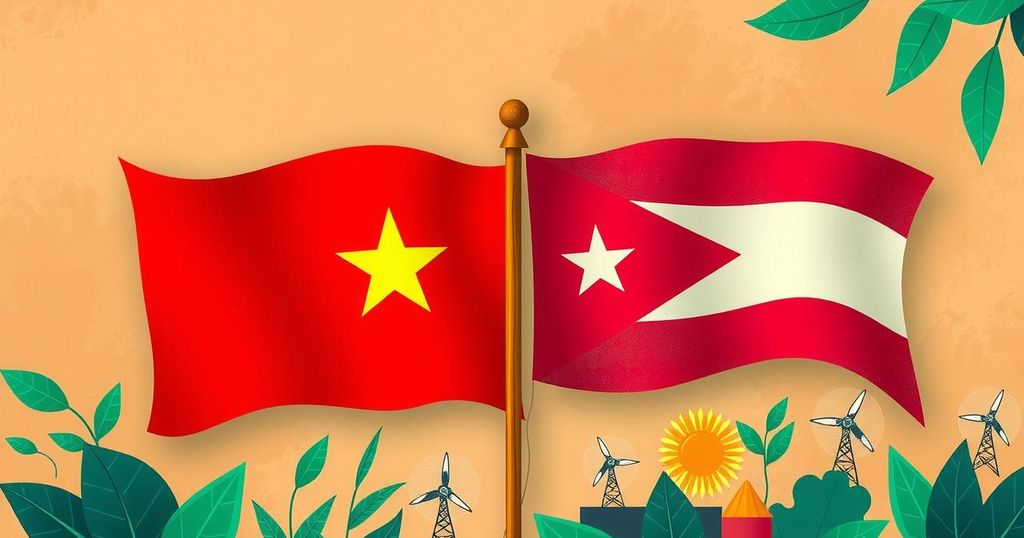Colombia’s Defense Minister Pledges Action Against Rebel Groups
Colombia’s newly appointed Defense Minister Pedro Sánchez has pledged to reclaim territory lost to rebel groups, addressing a severe security crisis. He emphasized a more aggressive military stance and the need to protect civilians, following recent violent incidents. The broader context includes struggles with smaller criminal factions arising post-2016 peace deals and ongoing peace negotiations with groups like ELN and FARC-EMC.
Colombia’s newly appointed Defense Minister, Pedro Sánchez, has articulated his commitment to reclaiming territory lost to rebel factions that have displaced thousands of citizens this year. During a speech to the military, he emphasized the necessity for Colombia’s armed forces to “strengthen national sovereignty and protect” the populace.
Sánchez indicated a shift towards a more aggressive military strategy, contrasting with recent governmental restraint on military operations against rebels. He expressed, “We cannot continue to allow our police and military to be spat at, attacked and have their throats slit as if they were inanimate objects.”
His remarks followed the kidnapping of 28 police officers and a soldier in the Cauca province amidst clashes with the FARC-EMC rebel group, highlighting the urgency of the current security situation. In January 2023 alone, over 36,000 people were displaced in Catatumbo due to violent attacks by the National Liberation Army, leading to the suspension of peace negotiations initiated by President Gustavo Petro.
Petro’s administration aims for a strategy termed “total peace” to engage various armed groups; however, this approach has not yielded sustainable results thus far. Analysts suggest that groups like the ELN and FARC-EMC have exploited ceasefires for recruitment while simultaneously exerting control over illicit activities such as drug trafficking.
Reflecting on the challenges ahead, Sánchez remarked, “Our president has been very generous in searching for peace. But that genuine generosity has been betrayed by those who have continued to exert violence against our citizens.”
Colombia’s history includes a landmark peace deal in 2016 with the FARC, leading to the disarmament of over 13,000 fighters. Yet, the rise of smaller criminal groups has intensified issues surrounding drug trafficking and illegal mining. To counteract these developments, Petro has proposed financial incentives for farmers in Catatumbo to transition from coca plantation to legal crops.
Sánchez’s appointment as defense minister marks a significant change, being the first retired military official in three decades to hold this position, a break from the tradition of civilian leadership. Notably, his recent fame arose from his involvement in a 2023 rescue operation for four indigenous children who survived a plane crash in the Amazon.
In summary, Defense Minister Pedro Sánchez is poised to adopt a more assertive military strategy in reclaiming territories lost to rebel groups, addressing a pressing security crisis in Colombia. His administration will face the dual challenges of combating ongoing violence and executing effective peace strategies. The recent history of peace negotiations highlights the complexity of achieving lasting resolution in the region amidst rising criminal influence over illegal markets.
Original Source: www.newsday.com




Post Comment